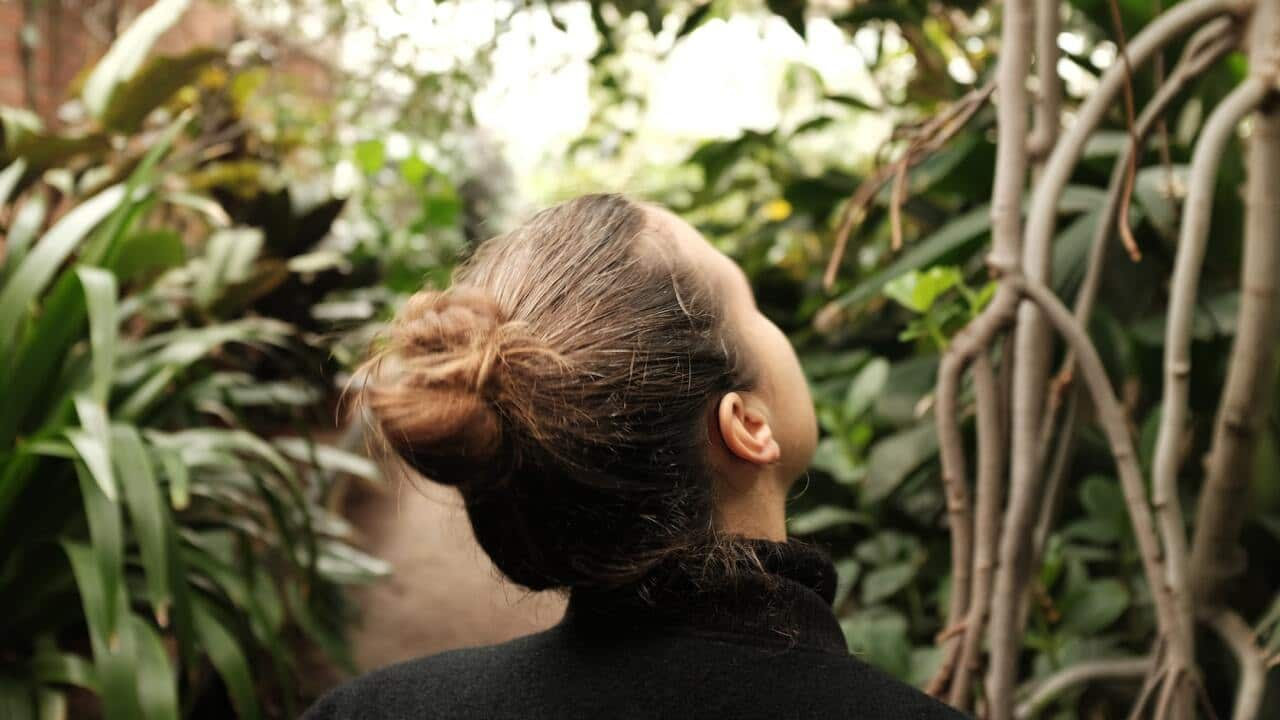Rose lives with a couple to ease the pressure of paying rent on her own in Sydney.
“I was living in a studio in Marrickville. I loved it and I would have stayed there but they increased my rent,” she explained to The Feed.
The 26-year-old sales coordinator says she moved into a two-bedroom townhouse to cut living costs.
“That kind of worked for both of us because [of] the cost of living by themselves - they realised it mounted up and they couldn’t afford it and nor could I,” she said.
While cost of living problems are plaguing all young Australians, it can be harder for singles to make ends meet.
“My rent at my old place went up - I think it went up $50 a week, which wasn’t really viable for me to keep living by myself,” Rose said.
Rose says when she can't afford to eat out she cooks every night or has the same meal three times in a row.
"It gets a bit boring, as groceries for one gets expensive," she said.
Rose says now the cost to live at her current home is also rising so the household may be forced to split up.
“I feel like gas bills and mostly the energy bills as well just like keep increasing,” she said.
“My house mates are sharing a room because they are a couple which is not something that I kind of have as an available option."
Singles feeling the pinch while couples share expenses

Chanelle Maher is based in country Victoria. Source: Supplied
"It makes things tough- I have always been able to pay my bills out right but these days I am noticing I have to put them on payment plans," she told The Feed.
"The cost of living is hard anywhere you live I think," she said.
The Bendigo resident said it's most difficult for households with mortgages and daycare costs.
"I think it is easier in a way for couples to share the load of bills in a way, but if you have one parent home raising children it’s no better.," she said.
She is concerned wages are not increasing, and costs keep rising.
"It’s crazy how we are meant to survive no matter what our situation is," she said.
Ms Maher uses several cost-savings strategies such as online shopping to manage her grocery budget, after pay, setting aside money in different accounts and prioritising bills before spending on other items.

Meg Elkins is a senior economics lecturer from RMIT University Source: Supplied
“On every front we’re feeling the pressure, which means that if you’re bearing those costs alone it’s significantly more to go about your life,” she said.
“If you are just comparing singles to couples, there is a significant benefit to being a couple than being a single,” Dr Elkins said.
The senior lecturer said many people are making sacrifices to manage their lives.
And a recent cost of living report from financial comparison site Finder shows Gen Z are experiencing financial stress at more than double the rate of baby boomers.
The results showed that groceries were the highest concern of financial stress for all respondents followed by housing costs and then petrol plus energy bills.
Last year, Energy Consumers Australia said that from April, electricity bills rose by $300 for households.
It is also anticipating significant increases in energy prices from July this year.
The dream of owning a home is also further out of reach for some Australians.
“It’s becoming increasingly more difficult to buy a house and aspirations are changing,” Dr Elkins said.
“Mostly when governments are deciding policies it is more set around the family than it is around singles,” she said.
Single-parent families at greater risk of poverty
Data from the 2021 Census data shows there are 25.6 per cent lone households and about 70 per cent family households in Australia, with the remaining number falling under 'group households'.
Of the 5.5 million couple families, just over half have children living with them (53 per cent).
And there are also more than a million single-parent families in Australia - a figure that is increasing slowly.
An Australian Council of Social Service study into poverty found the issue affected single-parent families at above-average levels, with female earners more disadvantaged in their households.
The joint report with the University of NSW shows women and single parents are most at risk of poverty.
Desire to travel but is it worth the spend?
Dr Elkins said service prices have risen and spending habits have changed, with less cultural activities and leisure.
“Travel expenses have not come down, people really do want to travel,” she said.
“They are not spending money on clothes and entertainment” Dr Elkins said.
“Particularly for the under 35s there are rites of passage that some young people have missed out on over the last few years and they are prioritising elements in their life that give them purpose and meaning,” she said.
“That is definitely what we are seeing,” Dr Elkins said.
And Rose is contemplating moving overseas and continuing to work remotely due to cost factors in Australia.
“Actually renting a room for three months in the centre of Portugal is cheaper by the week than it is here,” she said.



